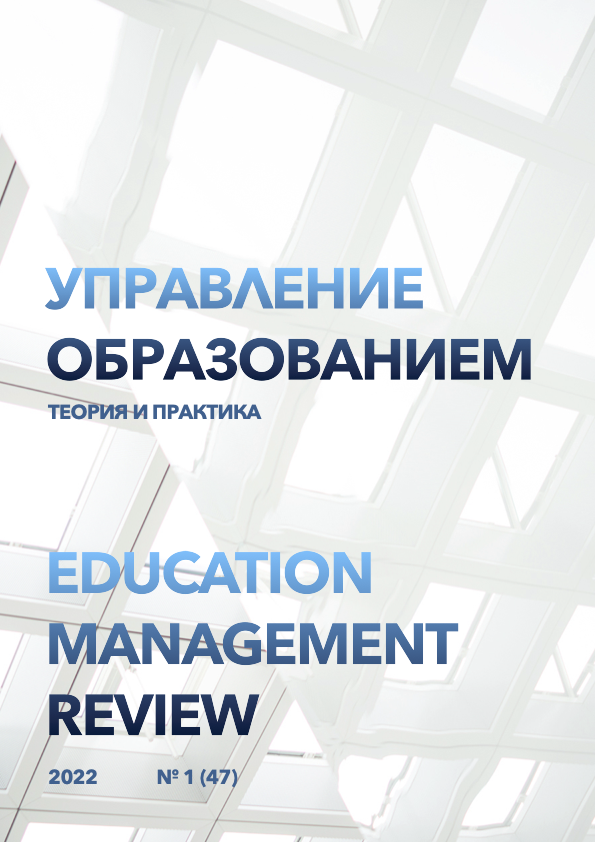Formation of structural support of students' competencies as an element of the implementation of the concept of sustainable development
DOI:
https://doi.org/10.25726/d8299-4845-8317-yKeywords:
Competencies, provision, development, training, projectsAbstract
The basic methods of forming social competence are group and partner work, role-playing or business games, independent work, project activities. In order to form social competence and improve communication skills in the educational process of higher education, trainings focused on the development of a specific skill or skills necessary for more professional performance of the task are also widely used. During the training, the latest techniques and modern technical means are used. The essence of the semantic aspect of teaching economics is the use of such models that not only reproduce exclusively the economic aspects of modern life, but also depict their connection with political and social events, which is an integral part of the problem. This makes it possible to prepare students for a comprehensive study of the economic problem as a social one.
References
Bazán-Ramírez, A., Montes-Iturrizaga, I., & Castro-Paniagua, W. (2022). Household possessions and parental support in Mexican students with high scientific competencies in PISA 2015. European Journal of Educational Research, 11(1), 259–272. https://doi.org/10.12973/eu-jer.11.1.259
Bundick, M. J., & Tirri, K. (2014). Student Perceptions of Teacher Support and Competencies for Fostering Youth Purpose and Positive Youth Development: Perspectives From Two Countries. Applied Developmental Science, 18(3), 148–162. https://doi.org/10.1080/10888691.2014.924357
Chong, W. H., Liem, G. A. D., Huan, V. S., Kit, P. L., & Ang, R. P. (2018). Student perceptions of self-efficacy and teacher support for learning in fostering youth competencies: Roles of affective and cognitive engagement. Journal of Adolescence, 68, 1–11. https://doi.org/10.1016/j.adolescence.2018.07.002
Durandt, R., & Lautenbach, G. (2020). Strategic support to students’ competency development in the mathematical modelling process: A qualitative Study. Perspectives in Education, 38(1), 211–223. https://doi.org/10.18820/2519593X/PIE.V38I1.15
Esterhuizen, H. D., Blignaut, S., Ellis, S. M., & Els, C. J. (2012). ODL students’ perceived computer literacy competencies, expectations of support intention to use and perseverance. Turkish Online Journal of Distance Education, 13(4), 76–94.
Kim, K. T. (2020). The Mediating Role of Core Competencies in the Relationship between Digital Literacy and Perceived Employability among Korean College Students: Difference by Employment Support Program Participation. Universal Journal of Educational Research, 8(6), 2520–2535. https://doi.org/10.13189/ujer.2020.080636
Legette, K. B., Hope, E. C., Harris, J., & Griffin, C. B. (2021). Integrating culturally relevant pedagogy with teacher social and emotional competencies and capacities training to support racially minoritized students. Advances in Motivation and Achievement, 21, 99–112. https://doi.org/10.1108/S0749-742320210000021007
Litvinov, A. V, Vasyakin, B. S., Shamalova, E. V, Polevaya, M. V, & Zhuravkina, I. S. (2020). Psychological support for adaptation of international students as a factor of raising their social competency. Systematic Reviews in Pharmacy, 11(12), 1404–1410. https://doi.org/10.31838/srp.2020.12.209
Lloyd-Jones, B. (2021). Developing Competencies for Emotional, Instrumental, and Informational Student Support During the COVID-19 Pandemic: A Human Relations/Human Resource Development Approach. Advances in Developing Human Resources, 23(1), 41–54. https://doi.org/10.1177/1523422320973287
Moreno-Murcia, J. A., Huéscar Hernández, E., Pintado Verdú, R., & Marzo Campos, J. C. (2019). Design and validation of the scale of support for autonomy in higher education: Relationship with the student’s labor competency [Diseño y validación de la escala de apoyo a la autonomía en educación superior: Relación con la competencia laboral del discente]. Revista Espanola de Orientacion y Psicopedagogia, 30(1), 116–130. https://doi.org/10.5944/REOP.VOL.30.NUM.1.2019.25197
Moreno, O. A. M., & Ramírez, M. A. N. (2020). University Support, Teaching Competencies And Entrepreneurial Competencies In Software Engineering And Graphic Design Students. International Journal of Emerging Technologies in Learning, 16(2), 285–301. https://doi.org/10.3991/ijet.v16i02.17327
Oh, J., & Song, J.-H. (2021). The relationship between students’ psychological needs, social emotional competencies, and relatedness support from peers and teachers in physical education classes. Review of International Geographical Education Online, 11(8), 501–514. https://doi.org/10.48047/rigeo.11.08.47
Papa, F. J., & Alexander, J. H. (2019). Aggregated student confidence estimates support continuous quality improvements in a competencies-oriented curriculum. BMJ Open Quality, 8(1). https://doi.org/10.1136/bmjoq-2018-000398
Vasilieva, V. S., Druzhinina, L. A., Lapshina, L. M., & Osipova, L. B. (2018). Competency-based approach to students’ training for support of children with disabilities [Seguimiento científico y ético del desarrollo de una personalidad creativa]. Opcion, 34(Special Issue 15), 748–772.
Zaripova, I. M., Merlina, N. I., Valeyev, A. S., Upshinskaya, A. E., Zaripov, R. N., Khuziakhmetov, A. N., & Kayumova, L. A. (2015). Methodological support for professional development of physical-mathematical sciences teachers, aimed at forming the project-technical competency of technical university students. Review of European Studies, 7(3), 313–318. https://doi.org/10.5539/res.v7n3p313




